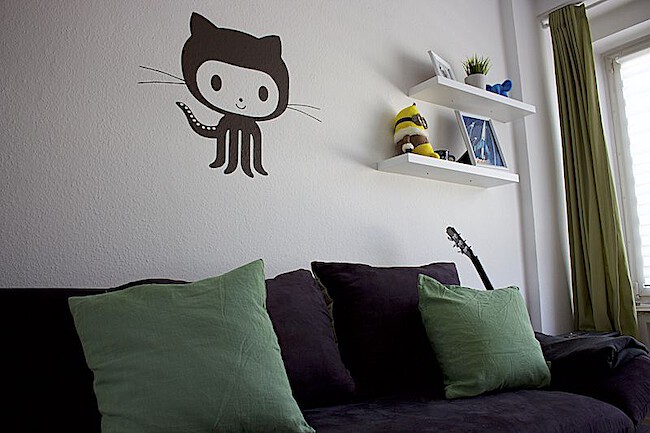
So I’m in a bit of a sentimental mood lately. Github got acquired by Microsoft. While I think the acquisition was well-deserved, I still wish it didn’t happen. Let me explain.
My early days
I joined Github on 3rd of January 2010. Since I was a bit late to the game, my usual handle (mre) was already taken. So I naively sent a mail to Github, asking if I could bag the name as it seemed to be abandoned. To my surprise, I got an answer. The response came from a guy named Chris Wanstrath.
All he wrote was “it’s yours.”
That was the moment I fell in love with Github. I felt encouraged to collaborate on projects, that everybody could contribute something valuable. Only later I found out that Chris was one of the founders and the CEO of the company.
Living on Github
Before Github, there was SourceForge, and I only went there to download binaries. Github showed me, that there was an entire community of like-minded people out there, who ❤️ to work on code in their free-time. To me, Github is much more than a git interface; it’s a social network. While other people browse Facebook or Instagram, I browse Github.
I can still vividly remember getting my first star and my first issue on one of my projects coming from a real (!) person other than myself.
After so many years, a pull-request still feels like the most personal gift anyone could give to me.
Github - the culture
After a while, I started to admire some Github employees deeply:
- Zach Holman (who is about my age) is a great writer, speaker, and one of the most creative developers I can think of.
- Scott Chacon, who taught me a lot about git and whose presentation tool, showoff, I’ve used at University.
- Tom Preston-Werner, who I admire for refusing an offer from Microsoft to pursue his dream and build Github, for establishing a super-nerdy company culture, and for Jekyll.
All three developers have since left the company. I can’t help but notice that Github has changed. The harassment accusations and letting Zach Holman go are only part of the story.
It has become a company like any other, maintaining a mature product. It doesn’t excite me anymore.
An alternative reality
There’s still a bitter taste in my mouth when I think that Github has fallen prey to one of the tech giants. I loved Github while it was a small, friendly community of passionate developers. Could this have been sustainable?
Maybe through paid features for project maintainers.
You see, if you do Open Source every day, it can be a lot of work. People start depending on your projects, and you feel responsible for keeping the lights on.
To ease the burden, I’d love to have deeper insights into my project usage: visitor statistics for longer than two weeks, a front page where you could filter and search for events, a better way to handle discussions (which can get out of hand quickly), better CI integration à la Gitlab.
These features would be targeted at the top 10% of Github users, a group of 3 million people. Would this be enough to pay the bills? Probably. Would it be enough to grow? Probably not.
So what?
I don’t think the acquisition will kill the culture. Microsoft is a strong partner and Nat Friedman is one of us. On the other side, I’m not as enthusiastic as I used to be. There’s room for competitors now and I’m beginning to wonder what will be the next Github. That said, I will keep the Octocat on my office wall, in the hope that the excitement comes back.